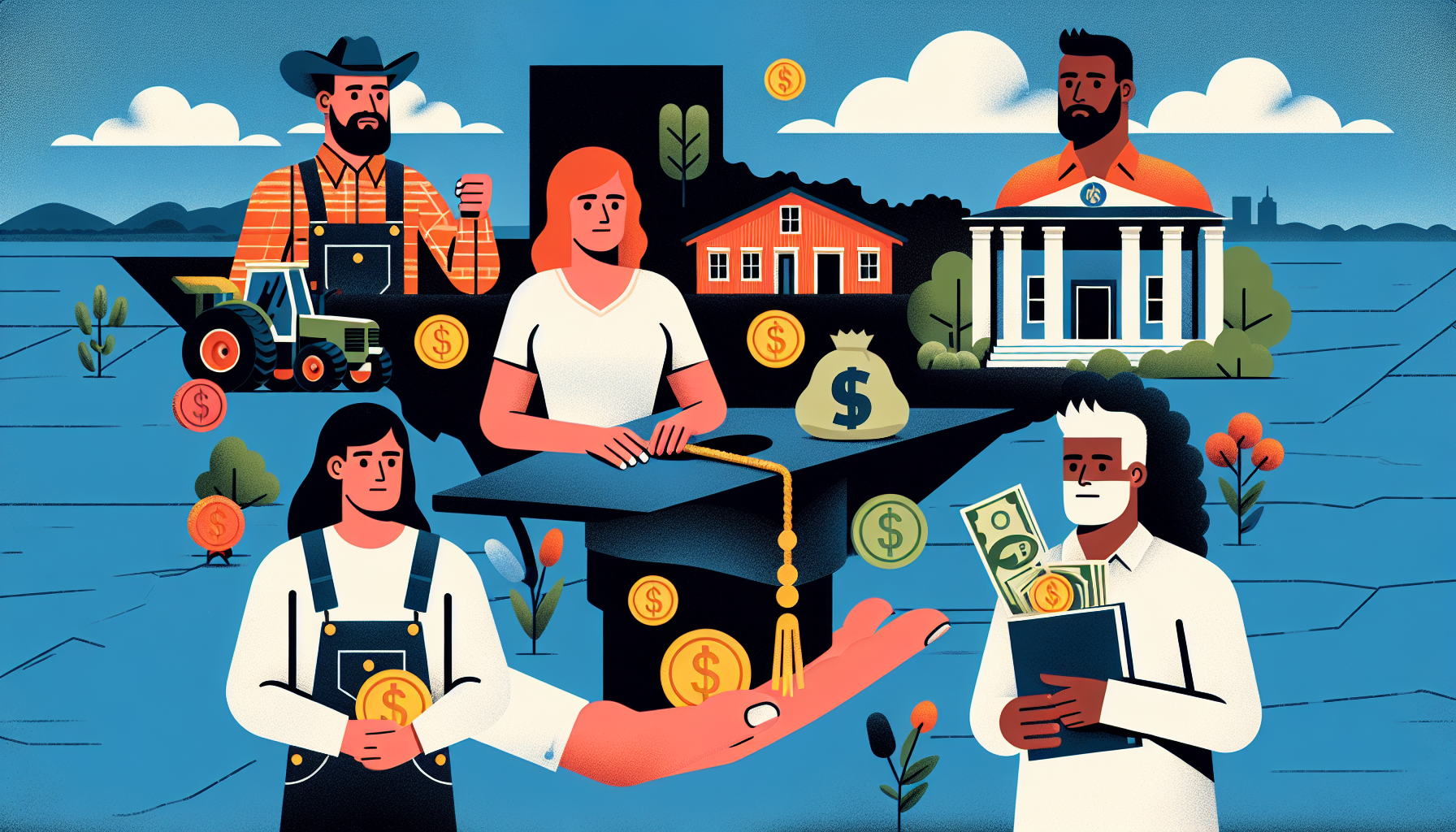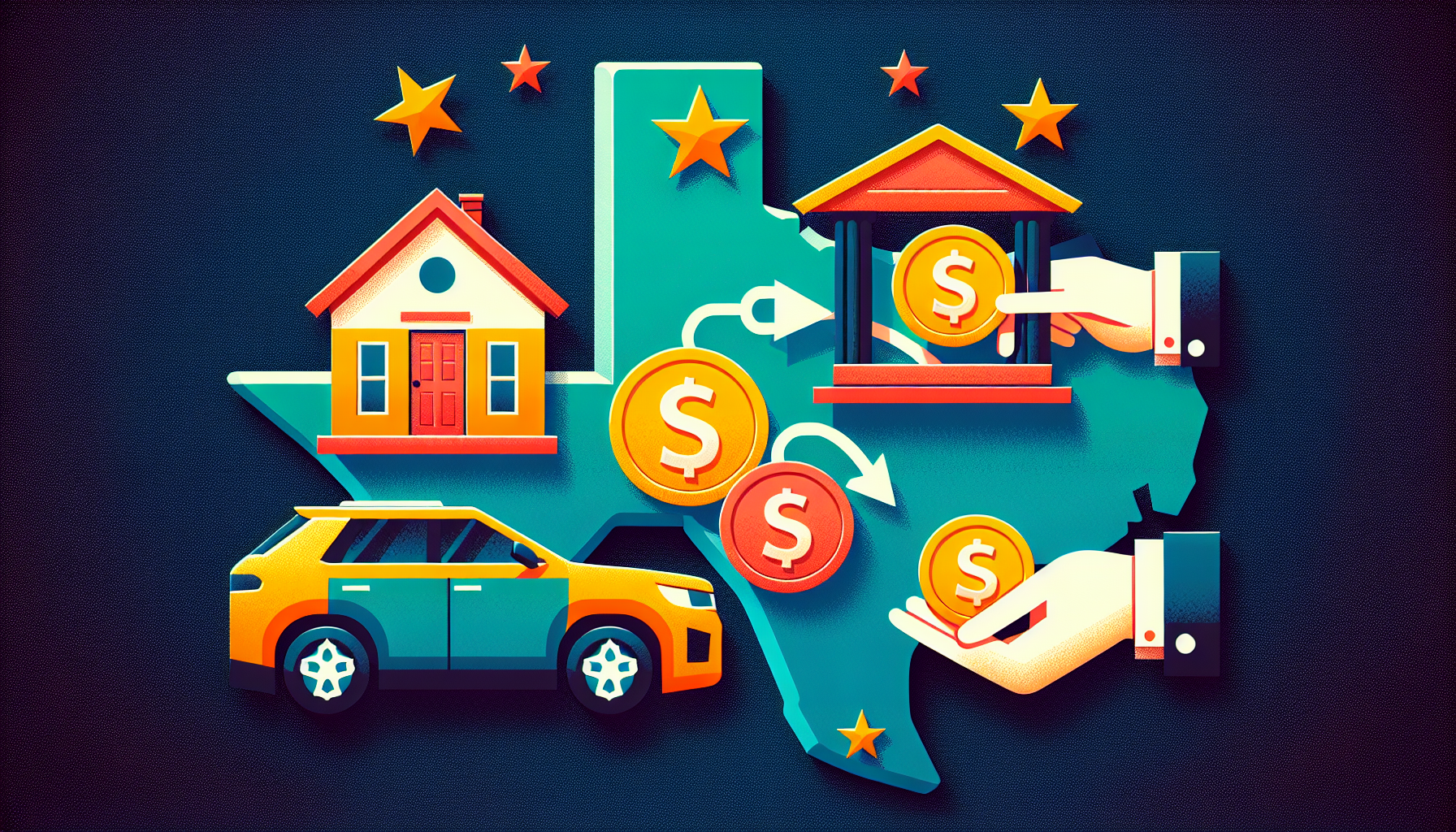
Get The Funds You Need
Get Your Funds in No Time with Primo Personal Loans
We’ll work with you to find the perfect loan solution to fit your needs.
Fast Process
Online Loans
Available 24/7
Increased Flexibility
All credit levels can apply
Various loan amounts
01

Fill in the online inquiry form
02

Get connected with a third-party lender
03

Cash in hand or in your bank account
Are you searching for personal loans Texas? Get clear guidance on the best options for your financial situation. This article offers a no-nonsense comparison of Texas lenders, loan types, and the critical factors to consider before you apply.

Personal loans in Texas are a popular financing option due to their versatility. They can serve a wide range of purposes, from covering education expenses and home improvements to addressing unexpected financial needs. These loans come in both secured and unsecured forms, offering borrowers flexibility according to their individual needs. Unsecured personal loans, in particular, are popular due to their accessibility and the fact that they don’t require collateral.
Before you apply for a personal loan, carefully evaluate your financial situation. This involves taking into account factors such as:
A comprehensive understanding of your borrowing capacity and repayment ability prevents you from taking on excessive and unmanageable debt.
Comparing interest rates, loan terms, and any additional charges is a key step when considering different personal loan offers. The choice between fixed or variable interest rates can significantly impact the overall cost of the loan and your fixed monthly payment.
When it comes to personal loans, you have two primary options: unsecured and secured loans. An unsecured loan, also known as a Signature Loan, does not require any collateral from the borrower. This makes them an attractive option for many individuals, particularly those who don’t want to risk their assets or don’t have any assets to pledge. However, this comes at a cost - unsecured loans often carry higher interest rates than their secured counterparts to compensate for the increased risk to the lender.
On the other hand, secured loans require collateral, such as a car or home, which can be seized by the lender if the borrower defaults on the loan. The benefit of secured loans is that they generally offer lower interest rates, as the collateral reduces the financial risk for the lender. This can be particularly beneficial for borrowers seeking to consolidate high interest debt, as lower interest rates can help them save money and pay off their debts more efficiently.
The overall cost and borrowing experience can be significantly impacted by factors such as:
For instance, online lending platforms have made a significant impact in the lending market through their convenience and quick approval process, attracting a wide range of borrowers in Texas.
There are two primary types of interest rates: fixed and variable. Fixed interest rates provide the security of consistent payment amounts throughout the loan term, enabling you to budget effectively. On the other hand, variable interest rates may initially be lower but are subject to changes based on market fluctuations. This could potentially increase the total cost of the loan if the rates rise. Therefore, understanding these subtleties and comparing various loan options is an important step before finalizing your decision.

In Texas, you have a plethora of choices when it comes to personal loan providers, including various loan companies. They range from traditional financial institutions such as credit unions and banks to online lenders. Each of these providers presents distinct offerings and advantages, making the choice highly dependent on your specific needs and circumstances.
Credit unions are member-owned, not-for-profit financial institutions that typically offer competitive interest rates for personal loans. For instance, members of Greater Texas Credit Union can apply for a personal loan either online or by visiting a local branch. Borrowers can also make online payments for their personal loans at the Credit Union of Texas through their Online Banking page.
Another notable offering from Greater Texas Credit Union is the Helping Hand Loan, a specialized product featuring competitive interest rates starting as low as 12.99%. This highlights the potential benefits of credit unions as personal loan providers, particularly for members seeking competitive rates and personalized service.
Banks are traditional loan providers known for their established reputations and a broad range of loan options. To secure a personal loan from a bank in Texas, individuals are required to complete a loan application, provide evidence of identity and financial details, and satisfy the bank’s eligibility requirements. The interest rates offered by banks are influenced by various factors, including the borrower’s credit score, income, debt-to-income ratio, and specific loan details such as size and repayment term.
Highly regarded banks for personal loans in Texas include LendingPoint and Truist. They showcase their strong reputation and diverse loan offerings, making them a reliable choice for borrowers in the state.
Online lenders offer a unique blend of convenience and flexibility, making them an attractive option for many borrowers. These online platforms have streamlined application processes for online loans, typically requiring only a few minutes to complete.
In fact, the typical timeframe for approval of a personal loan from an online lender in Texas is less than 5 minutes, making them an excellent choice for borrowers in need of quick access to funds. To find a trusted lender, just fill in the online form.

Choosing the right personal loan involves considering several factors, including:
Taking all of these factors into account will help you make an informed decision about the best personal loan for your needs.
Your credit score plays a pivotal role in the loan application process. Lenders in Texas typically look for credit scores within the range of 560 to 660. The acquisition of personal loans can have diverse effects on your credit score. For example, timely repayment of a personal loan may boost your credit score, while missed payments can lead to a significant decrease. Hence, understanding how a loan application might affect your credit score is important before proceeding.
Some lenders offer a soft credit inquiry, which doesn’t impact your credit score, unlike a hard inquiry, which can decrease your score by multiple points. This enables borrowers to assess loan options without worrying about negatively impacting their credit score.
Beyond the principal and interest, personal loans often come with additional fees and charges. These can include:
These additional costs, often referred to as unexpected expenses, can substantially inflate the overall loan expense, so factoring them in while selecting a loan is crucial.
Fees and charges vary among lenders in Texas, depending on the specific lender and loan type. Hence, grasping the full cost structure of a loan, inclusive of origination fees, prepayment penalties, and any other charges, is a key step before finalizing a decision.
Repayment flexibility can greatly impact your borrowing experience. It denotes the capacity to modify the repayment terms to align with your financial requirements, such as withdrawing funds as necessary, choosing the loan duration, and adjusting the monthly payment amounts. Some lenders are known to provide flexible repayment options on personal loans. To get contacted by a trusted lender, just fill in our online form.
Some lenders also offer a grace period, a specified time during which a borrower can postpone a payment without facing any penalties, providing temporary financial relief. Others offer payment deferrals, allowing borrowers to temporarily suspend their payments for a specified period. Being aware of the available repayment options, such as installment loans, can aid in better loan management and help evade undue financial strain.

Securing a personal loan requires more than just a good credit score. Lenders also consider your income, employment stability, and debt-to-income ratio. Hence, following certain strategies could enhance your credit approval odds, like establishing a solid credit profile, lowering your debt-to-income ratio, and getting all necessary documents ready for your loan application.
Establishing a good credit profile requires adopting a range of savvy financial habits. These include making timely payments, maintaining low credit utilization, and monitoring your credit report. Timely payments not only help avoid late fees but also demonstrate to lenders your reliability as a borrower, contributing positively to your credit score. Keeping your credit utilization low, preferably at 30% or less of your credit limits, showcases your responsible credit management.
Keeping an eye on your credit report is another key component of establishing a solid credit profile. It allows you to:
The ratio of your debt-to-income is a significant aspect lenders take into account during the loan application evaluation. It represents the portion of your monthly income allocated to debt repayment. A lower ratio can improve the likelihood of securing a personal loan at a more favorable interest rate.
There are several strategies to decrease your debt-to-income ratio. This can be achieved by:
These strategies, including debt consolidation, can lead to a decreased debt-to-income ratio, which can enhance your loan approval prospects.
The loan application process necessitates several documents for verifying your identity, income, and your capacity to repay the loan. These include proof of income, employment verification, and your credit report. Valid forms of identification can include a Driver’s License, State ID Card, Commercial Driver’s License, Military ID, Federal ID Card, Passport, Alien Registration Card, or Matricula Consular Card.
Employment verification and proof of income are also crucial. Lenders typically require these to validate your employment track record and income. Proof of income can be furnished through documents such as pay stubs, W-2 forms, or tax returns. Having these documents prepared in advance can ensure a smoother application process and increase your chances of approval.

While personal loans can be an excellent financing solution, they might not always be the best fit for everyone’s needs. If a personal loan doesn’t seem like the right choice for you, there are several alternatives to consider in Texas. These include home equity loans and lines of credit, auto loans, and peer-to-peer lending.
Home equity loans and lines of credit offer an alternative way to borrow money, especially if you’ve built up substantial equity in your property. These loans use your home as collateral, often resulting in lower interest rates compared to unsecured loans.
A home equity loan provides a one-time lump sum with a fixed interest rate, making it a good choice for large, one-time expenses. On the other hand, a home equity line of credit (HELOC) offers a revolving credit line, providing flexibility to borrow and repay as needed. However, it’s important to note that Texas homeowners are subject to a maximum loan-to-value ratio of 80% for HELOCs.
If you’re specifically seeking to finance a vehicle purchase, an auto loan might be a better fit than a personal loan. Auto loans are tailored for vehicle purchases, potentially providing more competitive rates and terms that are better suited for this specific purpose compared to personal loans.
In Texas, auto loans can be obtained with a variety of terms and interest rates, typically falling around 5.27 percent. It’s also possible to secure an auto loan with poor credit, as some financial institutions and dealerships offer specialized financing options for such cases. However, similar to personal loans, applying for an auto loan requires certain documentation such as:
Peer-to-peer lending is an innovative alternative to traditional loans. It operates by connecting individual borrowers with individual lenders, bypassing traditional financial institutions. This model can potentially result in lower interest rates, with rates starting as low as 4% for those with good credit scores.
In Texas, the eligibility criteria for peer-to-peer lending may involve having an annual gross salary of at least $70,000 or a net worth of at least $250,000, along with a credit score of 600 or above. The application process involves visiting a peer-to-peer lending website and completing an online application, offering a convenient and flexible borrowing experience.
In conclusion, personal loans in Texas offer a versatile financing solution for a wide range of purposes. By understanding the differences between unsecured and secured loans, assessing the impact of interest rates and loan terms, and choosing the right provider, you can secure a personal loan that fits your needs and financial situation. Remember to consider the impact on your credit score, the associated fees and charges, and the flexibility of repayment when choosing a loan. By building a healthy credit profile, reducing your debt-to-income ratio, and preparing the necessary documents, you can improve your chances of loan approval. If a personal loan doesn’t seem like the right fit, alternatives such as home equity loans and lines of credit, auto loans, and peer-to-peer lending offer viable options.
You can find the best personal loans by comparing low-interest options available in the market. Make sure to check the terms and conditions before making a decision.
You can borrow money in Texas by applying for a personal loan either online or in-person at a bank or credit union. You will need to provide personal and financial information, such as your income, employment details, credit score, and desired loan amount.
Typical fees and charges related to personal loans include a loan origination fee (1% to 10%), late payment fee ($10 to $100 or 5% of the monthly payment), loan application fee (around 1%), documentation fee, and optional credit insurance.
Yes, you can still get a personal loan in Texas even if you have bad credit. Primo Personal Loans specializes in connecting borrowers with lenders who offer personal loans for bad credit in Texas. While having bad credit may result in higher interest rates or stricter terms, it is still possible to secure a personal loan to meet your financial needs.
The time it takes to receive funds from a personal loan in Texas can vary depending on the lender and the application process. In some cases, you may receive funds as quickly as the next business day after approval. However, it's essential to check with the lender for their specific processing times.
Personal loans and payday loans are two different types of loans with distinct characteristics. A personal loan is typically repaid over a longer term, often in installments, and is available in larger amounts. On the other hand, a payday loan is usually a short-term loan intended to cover immediate expenses and is typically due on your next payday. Payday loans may have higher interest rates and fees compared to personal loans, making them a more expensive option for borrowing.
Primo Personal Loans does not charge any upfront fees for using their service. The platform acts as an intermediary, connecting borrowers with third-party lenders. However, it's essential to review the terms and conditions of the specific loan offer provided by the lender, as there may be fees associated with the loan itself.
Yes, being self-employed does not disqualify you from obtaining a personal loan in Texas. Lenders may assess your income and financial stability differently compared to traditional employees, but as long as you can demonstrate a steady income and meet other eligibility criteria, you can still be eligible for a personal loan.
Yes, personal loans are typically flexible and can be used for a wide range of purposes. Borrowers often use personal loans for debt consolidation, home improvements, medical expenses, education expenses, or to fund special events. However, it's essential to inquire with the lender about any restrictions they may have on loan usage.
Yes, personal loans in Texas are subject to regulations to protect borrowers. The state has specific laws and regulations regarding interest rates, loan terms, and consumer protection. It's crucial to work with reputable businesses like Primo Personal Loans, which connect borrowers to third-party lenders who adhere to these regulations.